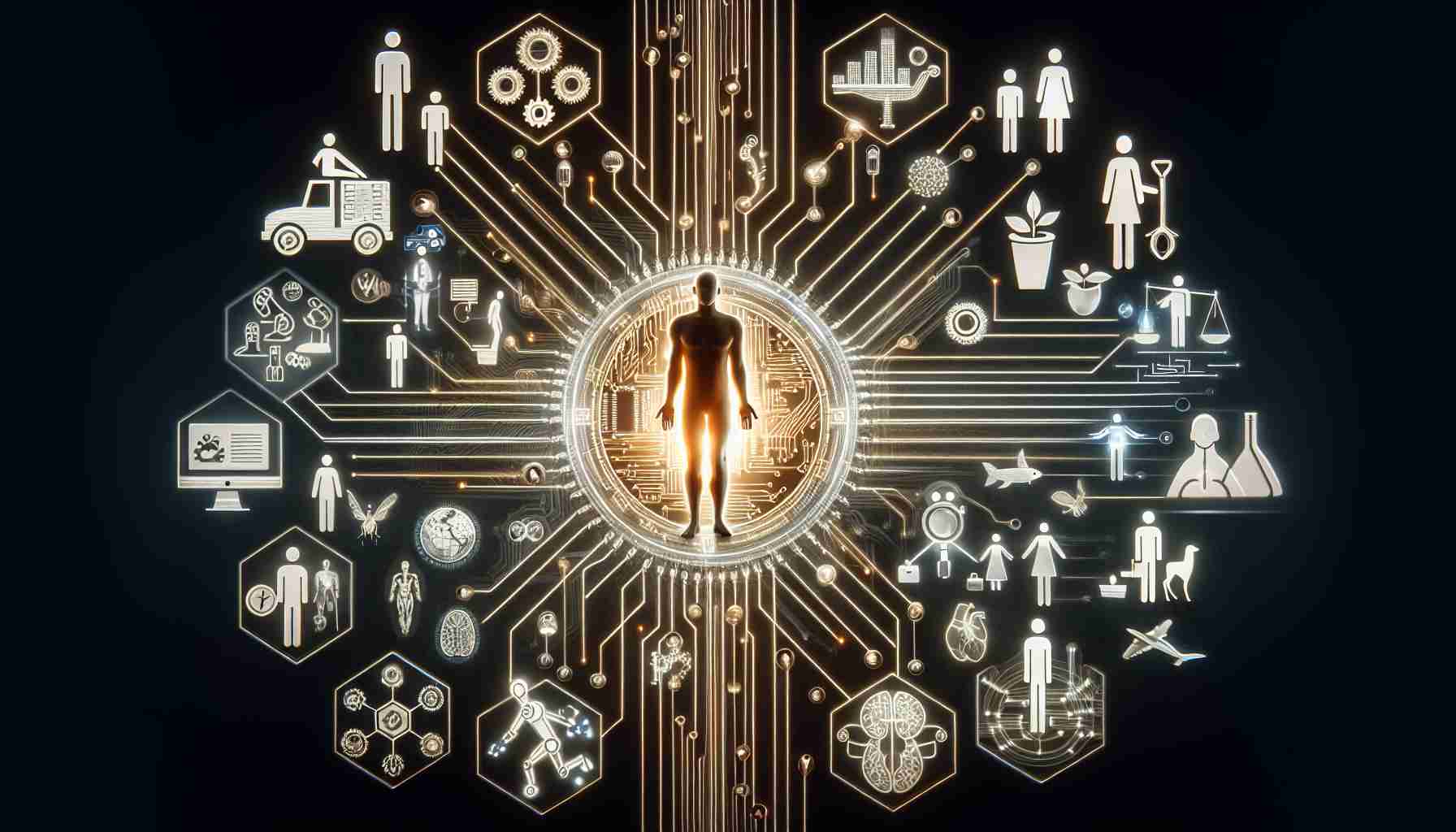The dynamic field of artificial intelligence (AI) serves as a pivotal tool in advancing human efficiency and capability. Its seamless integration into everyday life, often unnoticed, plays a major role from voice-activated assistants to personalized smart home experiences. As we edge towards a future where AI backs an impressive 95% of customer interactions, it’s clear that its influence is expanding exponentially.
This technology, while bolstering our ability to analyze large datasets, conduct repetitive tasks, and aid in complex decision-making, isn’t here to usurp the unique human traits of creativity, empathy, and intuition. Instead, industry leaders emphasize that AI’s role is to bolster our intellectual strengths.
AI’s proficiency in data processing is unlocking new insights, driving product innovation, and empowering businesses to excel in an ever-evolving marketplace. Beyond customer relations, AI tailors user experiences with meticulous precision, crafting meaningful engagement across digital platforms.
However, embracing AI doesn’t come without its challenges; substantial investments and ongoing maintenance are barriers for many businesses. Furthermore, with a McKinsey report predicting potential job displacements in the hundreds of millions by 2030, the social implications of automation become hard to ignore. In the face of such disruptions, industries predicated on human touch, such as handcraftsmanship and intricate surgical work, may find increased value.
Navigating the intersection of ethics, privacy, and potential biases in AI systems is also critical, as is addressing security risks that could impact essential services or sensitive information. In charting a path forward with AI, we must foster a symbiotic relationship with these systems, advocating for an approach rooted in collaboration, fostering a symbiotic relationship with these systems to magnify human intelligence.
Current Market Trends:
The integration of AI across industries is influencing a range of market trends. Increased adoption of cloud-based AI services is streamlining operations for businesses of all sizes. AI-powered analytics are getting more sophisticated, offering deeper predictive insights for decision-making. In healthcare, AI-driven diagnostics and personalized medicine are becoming more prevalent. Meanwhile, in the automotive sector, autonomous driving technology continues to advance. Even in creative industries, AI tools for content generation, like writing and image creation, are emerging.
AI is changing how jobs are performed, leading to a surge in demand for new skill sets. Employers increasingly seek individuals skilled in data science, machine learning, and the ability to work alongside AI technologies.
Forecasts:
Experts predict the global AI market will experience robust growth, reaching over $500 billion by 2024 according to a report by IDC. Continued AI advancements are expected to drive innovation, creating new products and services. As machine learning algorithms improve, AI’s predictive capacities will become even more nuanced and valuable.
However, job displacement due to AI and automation remains a concern. While AI is expected to create new job categories, there might be a mismatch between the jobs lost and the new jobs created, both in terms of quantity and skill requirements.
Key Challenges and Controversies:
One of the key challenges in AI adoption is ensuring ethical usage. As AI systems can proliferate biases existing in their training data, there’s a growing emphasis on ethical AI development. This includes creating systems that are transparent, fair, and equitable.
Privacy is another significant issue, with AI systems capable of analyzing vast amounts of personal data. Ensuring the security of this data and preventing misuse is a priority for companies and policymakers alike.
Controversially, the potential for AI to be used for surveillance and in military applications, including autonomous weapons systems, raises ethical and security concerns that are hotly debated on the global stage.
Advantages and Disadvantages:
AI has numerous advantages. On the upside, it increases efficiency, enhances the precision of predictions, and can perform tasks at a scale unattainable by humans. AI technology is crucial in areas such as drug discovery, where it can predict the success rate of pharmaceuticals, thereby saving time and resources.
On the downside, AI introduces challenges such as potential job displacement, requires significant energy consumption which has environmental implications, and can exacerbate socioeconomic disparities if its benefits are unevenly distributed.
For those interested in the broader conversation about AI and staying informed on the latest developments in the field, pertinent resources include:
– Massachusetts Institute of Technology for academic research and insights.
– IBM, which publishes frequent updates on their AI developments and tools.
– Google AI for news on innovations and breakthroughs from one of the leading companies in the field.
It is essential for anyone engaging with AI, whether they’re an industry leader or a curious consumer, to consider these broader implications and participate in shaping an AI-driven future that is ethical, sustainable, and enhances human potential without compromising human values.
The source of the article is from the blog dk1250.com

